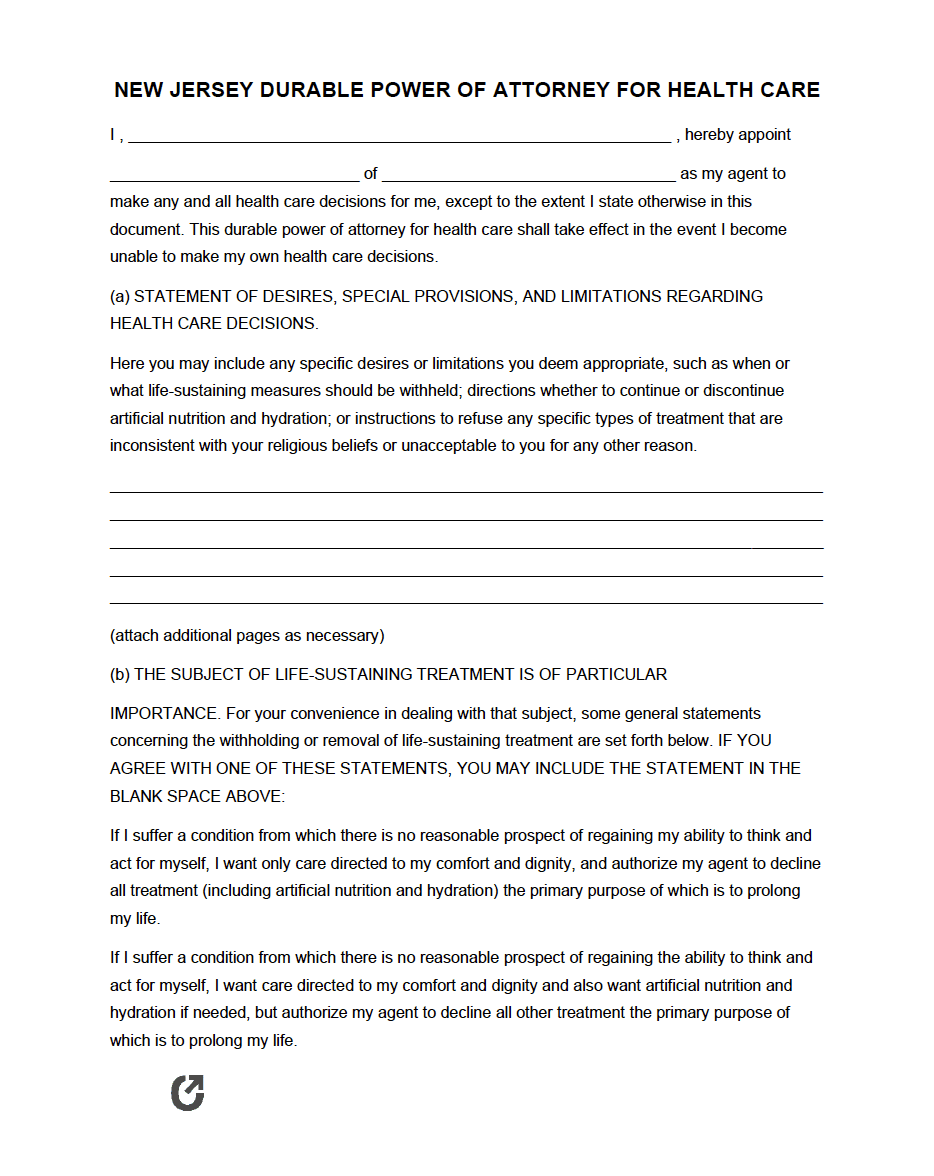New Jersey Medical Power of Attorney Form
A New Jersey medical power of attorney is created by a principal so that a health care representative can legally make medical decisions for them. The health care representative only has this power if the principal becomes unable to communicate their wishes. The form allows the principal to choose whether or not they want artificial nutrition and hydration. They can also include additional specific instructions if they have any. For example, if they do not want cardiac resuscitation (CPR), they must include this request in Part C of the form. However, this section is optional, meaning that the principal does not need to fill it out.
When selecting a health care representative, the principal must appoint a trustworthy individual who will make decisions in their best interest. Choosing the right person is especially important if the principal has spiritual, cultural, or religious beliefs. For this reason, a spouse or adult child typically takes on this role since they know the principal well. Health care representatives who make decisions in good faith are not responsible for the outcome of the treatment or care. In other words, if the principal’s condition worsens because of the health care representative’s choice, neither parties are liable.
The principal can assign two (2) alternate health care representatives. These alternates replace the original representative if they are unavailable or do not wish to take on the role. The principal can also decide that they do not want the originally-assigned person to make medical decisions on their behalf. All three (3) representatives must know of this durable power of attorney and clearly understand their responsibilities. They must also agree to take on the role (if needed) while acting in the principal’s best interest.
The principal must include who has a copy (if anyone) of the durable power of attorney in Part D of the form. This step is critical, particularly if the principal needs to terminate the agreement or choose a new health care representative. The principal can also ensure that anyone who has a copy cannot use it to make their health decisions by filling out a revocation of power of attorney.
Laws: §§ 26:2H-53 – 26:2H-78
Signing requirements (§ 26:2H-56): Signed by the declarant in the presence of two (2) adult witnesses. The witnesses must verify that the declarant is mentally sound when signing.
Additional considerations: A video or audiotape recording can supplement an advance directive. If the principal is pregnant, they should include additional information about how they wish for themselves or the baby to be treated during a medical emergency.
